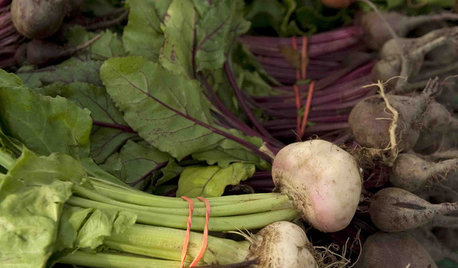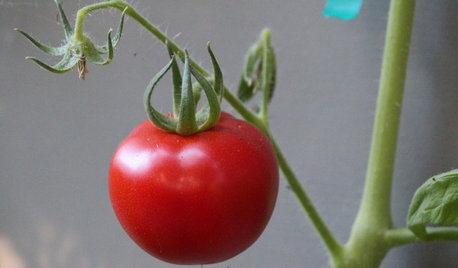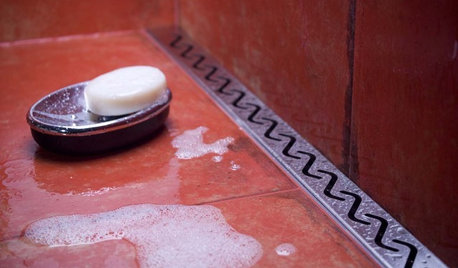Scum on fermented pickles
nwhorthappy
14 years ago
Related Stories

HOUSEKEEPINGHow to Clean a Glass Shower Door
See which tools and methods will keep those glass shower walls and doors sparkling clean
Full Story
MOST POPULARHow to Get Rid of Those Pesky Summer Fruit Flies
Learn what fruit flies are, how to prevent them and how to get rid of them in your home
Full Story
FARM YOUR YARDCool-Season Vegetables: How to Grow Beets
Give canned versions of this fall and spring garden favorite the heave-ho and discover its true flavor and colors
Full Story
ACCESSORIESStoneware Crocks Strike a Chord
Once just humble pantry items, stoneware containers have become showpieces around the home
Full Story
FARM YOUR YARDIf You Have Room for Only One Summer Crop ...
Get an edible that’s long on flavor even if you’re short on space, with a long-time gardener’s favorite picks
Full Story
HOUSEKEEPING20 Things You Might Be Forgetting to Spring-Clean
Clean these often-neglected areas and your house will look and feel better
Full Story
MONTHLY HOME CHECKLISTSSeptember Checklist for a Smooth-Running Home
Get ready to get cozy at home with snuggly blankets, well-stocked firewood, added insulation and more
Full Story
BATHROOM DESIGNHow to Choose the Best Drain for Your Shower
Don't settle for a cheap fix when you can pick a shower drain that suits your style preferences and renovation codes alike
Full Story





readinglady
nwhorthappyOriginal Author
Related Professionals
River Forest Landscape Architects & Landscape Designers · Alpharetta Landscape Contractors · Cornelius Landscape Contractors · Fort Payne Landscape Contractors · Lady Lake Landscape Contractors · Las Vegas Landscape Contractors · Peachtree City Landscape Contractors · Raleigh Landscape Contractors · St. Louis Landscape Contractors · Vacaville Landscape Contractors · Greenfield Landscape Contractors · Oxon Hill Landscape Contractors · Brandon Roofing & Gutters · Park Ridge Driveway Installation & Maintenance · Rochester Hills Driveway Installation & Maintenancereadinglady
allen8pickles
digdirt2
mudster
Linda_Lou
busylizzy
readinglady
HU-874746140